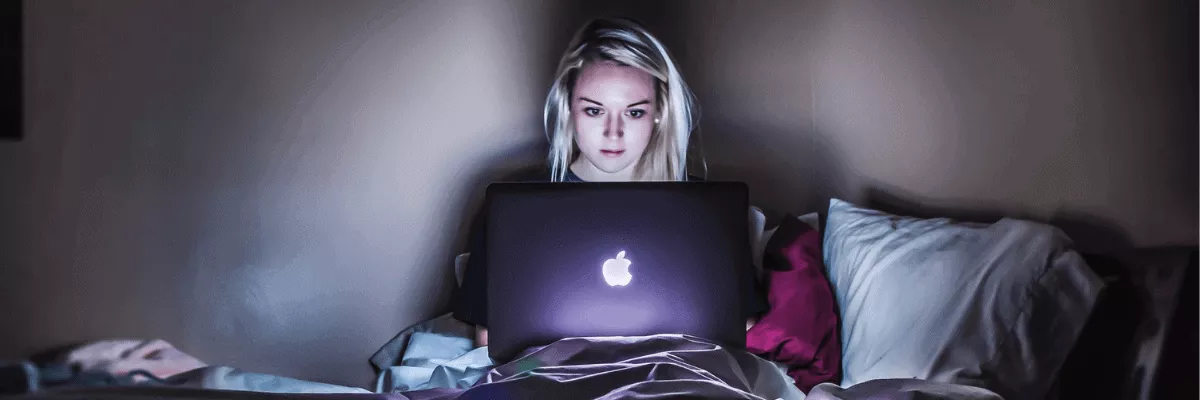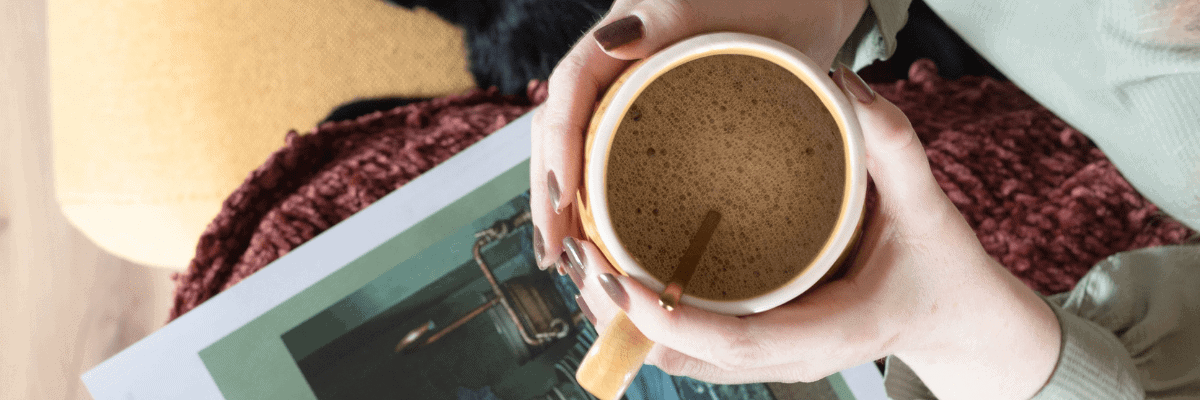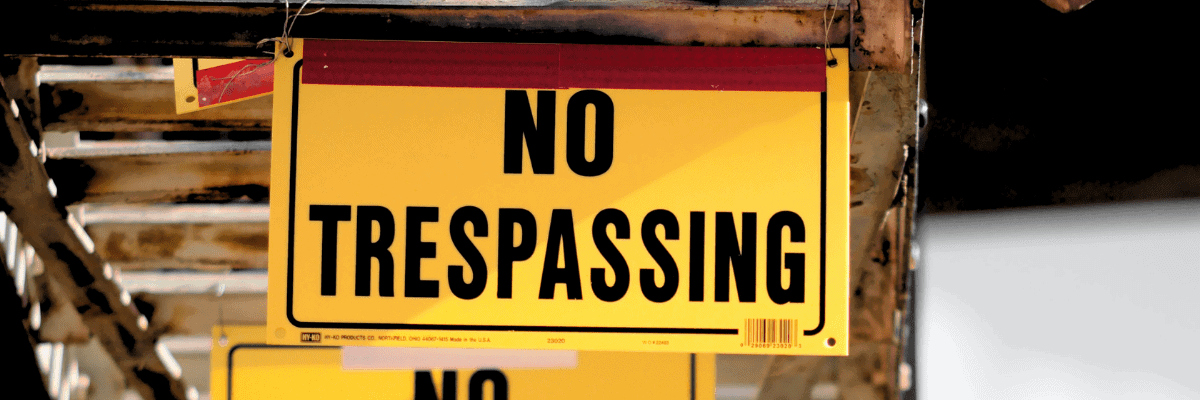Once again, I lie in bed at 2.00am reading on my phone’s Kindle app. I’m tired, but I keep telling myself “one more page”, long into the wee hours of the night.
I won’t let myself sleep – not so much because the book is super interesting (it is, a little). But more because I feel like my ‘free time quotient’ for the day hasn’t been satisfied.
Does this sound like something you do too? From scrolling social media to binging shows – that habit of staying up late doing unimportant things has a name: Revenge bedtime procrastination. And it’s the worst.
How To Fight Revenge Bedtime Procrastination
Wrap Up
It’s a weird sounding phrase, so let’s start with some backstory.
The term ‘Bedtime Procrastination’ was coined from a 2014 Dutch psychology study that surveyed the bedtime habits of 177 people.
They found that many participants willingly delayed sleep to do something that felt like leisure, even though, rationally, we all know more sleep is the better choice for our wellbeing.
Turns out, the more time we spend on things we are forced to do (that we don’t want to) in the day, the more likely it is we ‘reclaim’ this time with things we like to do at night.
Sound familiar?
The ‘Revenge’ prefix was added as a direct translation of a Chinese term on the internet for the same phenomenon: 報復性熬夜. It describes the decision to eschew sleep for additional free time, and is usually used to refer to people with busy daily schedules who lack leisure time.

It’s tempting to see the time allocated for sleep as ‘free time’. Work is over, it’s the end of the day and we’re hungry for our leisure time. It’s especially true for anyone who works around the clock.
Revenge bedtime procrastination has only become more common with the COVID-19 pandemic. It’s forced many more of us to work from home, often with longer hours and blurrier boundaries between work and play.
When “home” no longer feels like an escape from work, it can be tempting to stay up late in order to regain the freedom we think we’ve lost.
Healthline states that “getting less than 7 hours of sleep on a regular basis can eventually lead to health consequences that affect your entire body”. Yikes.
The detrimental effects from not having enough sleep is a serious-yet-underrepresented health risk that affects millions (probably billions!) worldwide. By procrastinating bedtime, we not only reduce the quantity of sleep, but also the quality of it.
This can lead to long-term health issues such as:

Without enough sleep, our bodies have less energy to function. With chronic sleep deprivation, the tiredness starts becoming something that even a fourth coffee can’t fix.

A lack of sleep typically leads to unusual or erratic mood swings: We start getting snappy and find it hard to think things through.
If you’ve ever found yourself thinking “I’m just too tired to think about this” and make a quick decision, then perhaps some good sleep is in order.

Micro-naps are brief mental lapses – just a quick few seconds of blacking out because you’re too tired.
These naps can be quite dangerous as they can come without warning at the worst times, like when driving a car or operating critical systems. The involuntary nature of this emergency response is a serious symptom of lacking sleep.
The immune system works best when you are rested. Many studies have shown that sleep deprivation has led to increased risks of hypertension, cardiovascular problems, mental health issues, and decreased resilience to common infections.
The pandemic era means it’s a bigger risk than ever to reduce our sleep!

Getting good sleep is one of the keys to maintaining healthy weight. When the body is tired, it signals the brain to increase food intake to make up for the lack of energy. It’s also harder to be motivated to work out when one is tired.
The thing about RBP is that it’s insidious and feels completely normal: It’s very likely that everyone in your social circle has this habit, and “tired” just becomes our “natural” daily state of mind.
We’ve done a bit of research and have found some useful tips to get your energy levels back!

RBP is all about regaining control over your time, at the cost of sleep.
Instead, try to take back control in the daytime.
For example, set reminders throughout your day to take several 15-30 minute breaks. Step away from work, stretch, engage in coffee-making rituals, play with your cat, write expressively; anything to break up the monotony.
By scheduling short periods of leisure throughout the day, you may feel less of a need to cram it all into the crucial pre-bedtime period. Plus your cat may love you all the more for it!
Alternatively – why not try waking up earlier and making the most of your morning? Mornings are a great time to indulge in activities you love before you jump into your workday.
Go check out our guide on DIYing a morning routine you won’t hate.

Stress is part and parcel of work, but when we’re working from home, we might start associating “home” with stress.
Having a “happy place” to retreat to is the best way to switch the mind from work to relaxation. Here, make sure all work thoughts are put away. That means no work texts, no emails, no thinking about your to-do list in this space.
The bedroom is a prime location for boundary setting: Don’t work in bed, don’t reply to work-related texts, and definitely forget about fielding calls while you’re there!
Lacking space? You could perhaps designate a “quiet corner” where you can let your mind unwind and decompress away from work. A comfy armchair with a view of the outside, your cat, or a goldfish in a bowl can do wonders.

It’s a lot easier to set aside the phone in lieu of shuteye if your body is tired.
Exercise releases all sorts of feel-good hormones in the brain and works the muscles so that you can end the day feeling like you accomplished a lot.
It doesn’t even need to be a crazy 45 minute HIIT workout; a brisk 20 minute walk in the outdoors will help your body readjust to physical movement. Top it off with a 15 minute stretch for long term flexibility and overall better sleep!
Plus, finding time to workout is probably easier than you think!

As strange as it may feel to reintroduce a childhood restriction, having a consistent bedtime means your body forms the habit of powering down at the same times every day.
Getting to sleep faster allows us to feel like we aren’t wasting time trying to get there, which means less chance of RBP recurring in the future.
Although it sounds so old to say it’s bedtime, your body (and your mind!) will thank you for it the next day with energy, focus, and motivation to be productive.

Blue light suppresses the body’s release of melatonin – that’s the body’s natural sleep hormone and is an essential part of good sleep.
Our gadgets are a huge source of blue light, so avoiding their use before bedtime can greatly help you towards better sleep. Read a book or engage in a low-tech activity to relax instead.
For those who can’t escape their devices, you might want to consider getting yourself a decent pair of blue light glasses. These have lenses that block or filter the blue light, which can help your body combat digital fatigue and get back to producing melatonin for sleep.

The second part of doing away with blue light is to avoid the temptation of checking messages.
You don’t have to go straight Airplane-mode on your device, but is it really necessary to hear messages coming in while you’re asleep?
Not only does the noise interrupt your transition to sleep, but the temptation to check just one more message may bring more blue light into your bedtime.
Having a daily pre-bedtime ritual signals your body that it’s time to transition to sleep.
Sure, building a habit takes perseverance. According to a 2009 study published in the European Journal of Social Psychology, it takes 18 – 254 days for a new habit to form: While that may seem like a long time, getting to sleep faster and waking up refreshed makes it all worth it.
Some rituals everyone can enjoy:
We’re often so stressed about our to-do tomorrow, but these activities allow you time to decompress and recenter for a restful night.
Revenge bedtime procrastination is definitely a habit that we should break; aren’t you tired of feeling tired?
By forcing ourselves to skip the night time scrolling, we allow our bodies more time to repair and rejuvenate itself. You’ll start to feel healthier, happier, and motivated to take on new challenges – and you’ll have the focus to solve them quickly!
Looking to improve your sleep? Check out our article for tips on how to sleep better. Just make sure you’re not reading it as an RBP activity!
Leon is a Malaysian-based copywriter with vested interests in music, trading, and crypto. A voracious appetite for reading has given him knowledge over a wide variety of topics and industries.